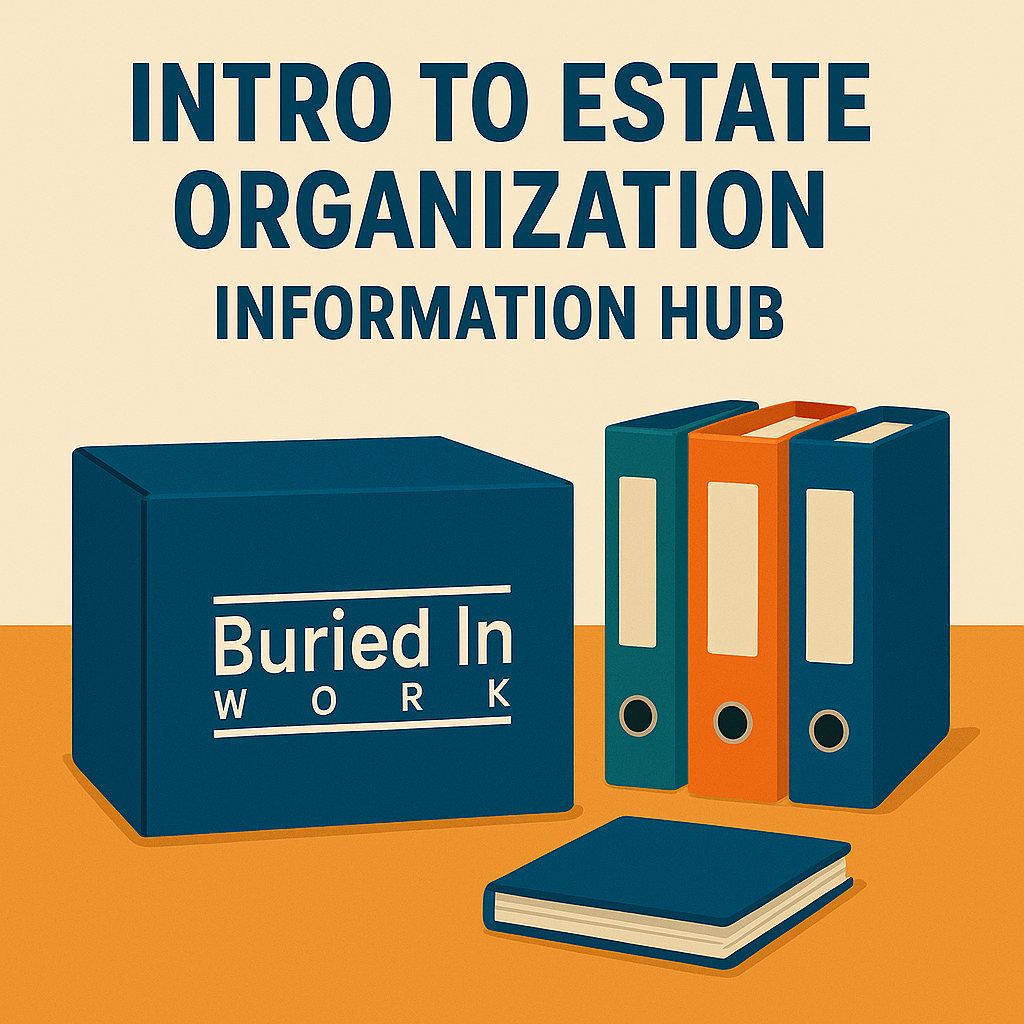Leave Your Heirs The Gift of Organization
The Estate Organization Hub
Estate organization is one of the most important yet overlooked aspects of estate planning. Without a clear, structured system, loved ones may struggle to locate important documents, manage assets, and fulfill final wishes. Whether you’re planning for yourself or assisting a family member, organizing your estate now can reduce stress, prevent financial complications, and ensure a smooth transition.

Key Things To Know
A well-organized estate provides clarity, reduces stress for your loved ones, and ensures that your wishes are carried out efficiently. Below are some key considerations to help you get started.
- Start early: The sooner you begin organizing your estate, the easier it will be for your family to handle your affairs when the time comes. Waiting until a crisis often leads to unnecessary stress and complications.
- Gather and store essential documents: Important records like wills, trusts, financial statements, and advance directives should be kept in a secure location and made accessible to your executor or trusted family members.
- Create a digital estate plan: Many assets today are online-based. Organizing passwords, account details, and digital records ensures that your digital legacy is properly managed and prevents complications after your passing.
- Consolidate important contacts: Your executor, financial advisors, attorneys, and key family members should know where to find relevant documents and who to contact for legal, financial, and medical matters.
- Use estate organization tools: Structured solutions like the CLEAR Kit and Executor’s Summary Report simplify estate documentation, ensuring that your loved ones have a roadmap to follow when managing your estate.
Checklists, Guides, & Resources
Buried in Work offers a variety of checklists, guides, and other resources. Below are some of the most popular ones related to this information hub.
Find A Service Provider Near You
Need professional assistance? Use our directories to find trusted service providers near you who specialize in estate planning, end-of-life organization, and related services.
Articles
Frequently Asked Questions
Estate organization involves gathering, documenting, and securely storing essential legal, financial, and personal records to ensure a smooth transition for your loved ones. Below are answers to common questions about how to get started, what documents to include, and best practices for keeping your estate organized.
Disclaimer: The information provided on this website and by Buried in Work is for general informational purposes only and should not be considered legal advice. Please consult with a qualified attorney or subject matter expert for advice specific to your situation.




